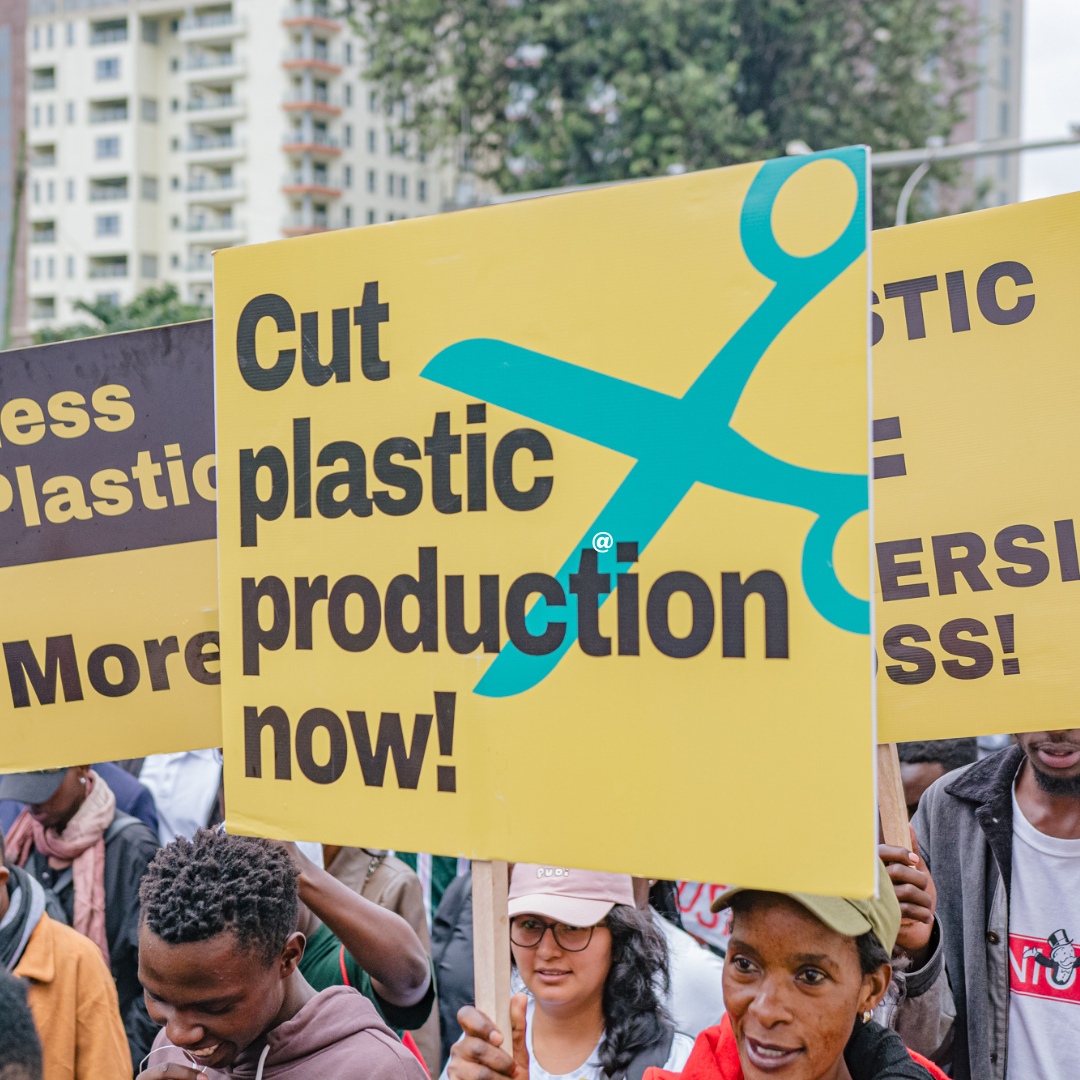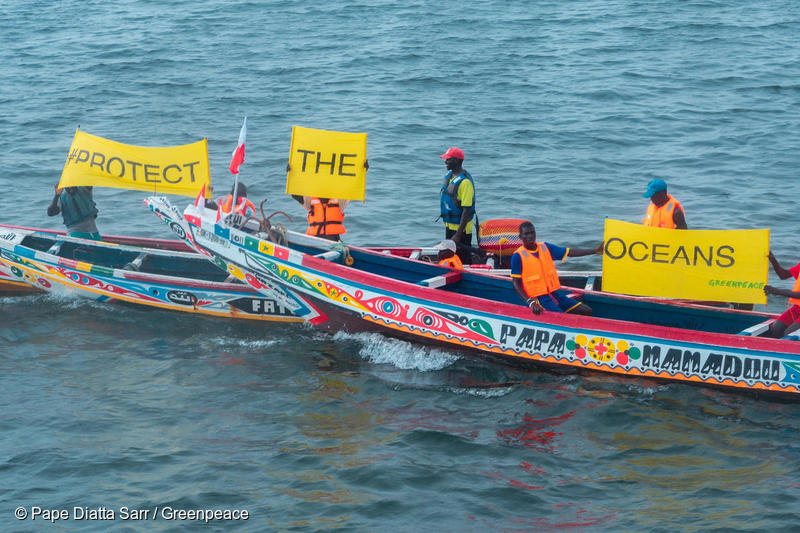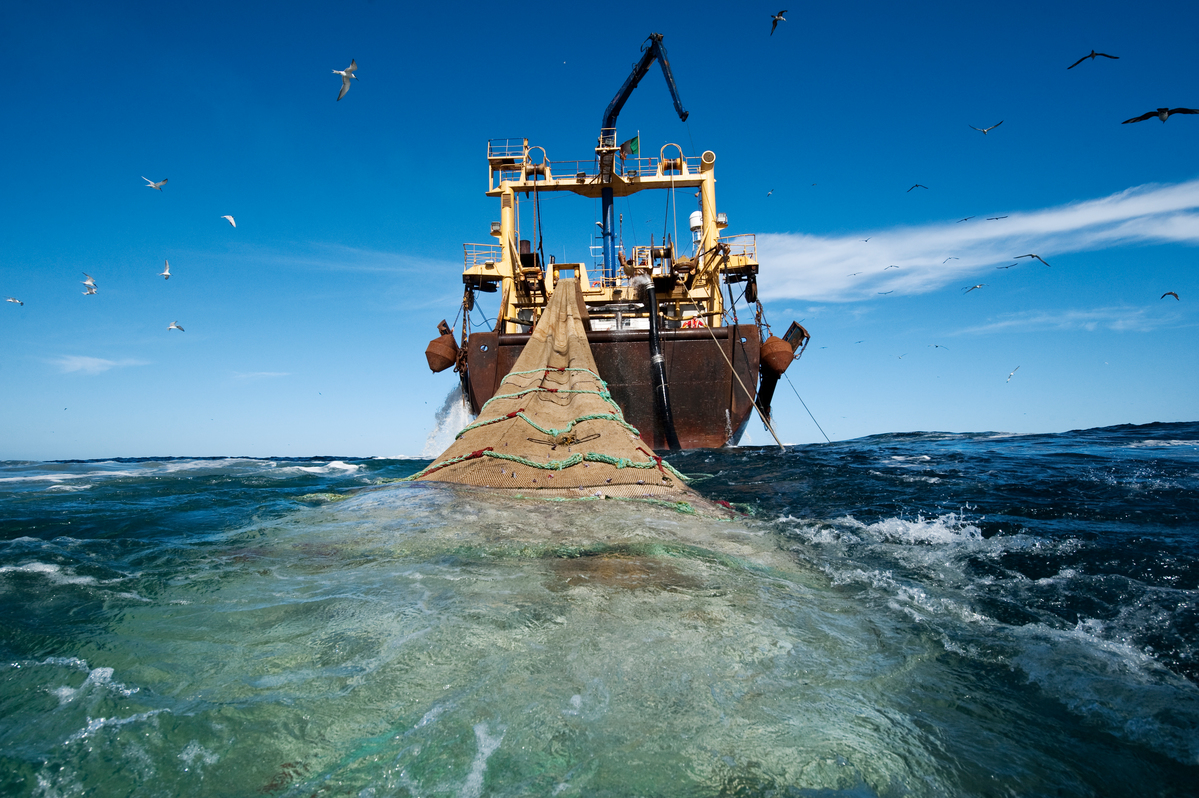On this World Fisheries Day, fishing communities all along the coastline of Senegal are paying tribute to colleagues and friends who are losing their lives at sea in attempts to reach the shores of Europe in their canoes. Every year, fishermen are forced to leave their country and put their lives at risk as a result of a deep despair caused by scarcity of the resources they depend on for jobs and food security. A situation fueled by the introduction of numerous and destructive foreign fishing boats as well as forever hungry fishmeal and fish oil factories competing for fish vital to food security in the whole West African region.
The situation is greatly worrying with Illegal migration from Senegal towards Europe, commonly known as “Barça or Barsakh” (Barcelona or Death), having resurfaced. In October, at least 140 people drowned on their way to the Canary Islands from Mbour in Senegal. According to the U.N. 14 boats carrying 663 migrants, among them 42 children, had left Senegal for the Canary Islands in September only with a quarter of the boats either sinking or encountering other serious problems. People who were simply trying to escape poverty but ended up paying with their lives. The rise of migration is taking place not long after the publication of the Greenpeace report “Seasick: As COVID-19 locks down West Africa, its waters remain open to plunder” highlighting the plunder of West African fishery resources and the threat it poses to more than 40 million people across West Africa.
Media as well as social media is now reporting on the increase of convoys of Senegalese canoes setting out towards the shores of Spain and the massive arrival of young Senegalese fishermen in Tenerife among other places.
This new wave of illegal migration no longer consists of mainly young Senegalese. This time it’s different as it now includes professional fishermen who take the path of exile, while during the first waves these fishermen were only playing the part of conveyors of other migrants.
But what is driving Senegalese fishermen to turn their back on their ocean? An ocean known to be among the richest in the world. Why do they venture into the unknown risking their lives in the process? The answers correspond with the findings in the before mentioned Greenpeace report and points towards devastating mismanagement of Senegalese fisheries and ocean areas.
Indeed, the illegal and intransparent introduction of large industrial fishing vessels, the lack of appropriate management measures to regenerate fishery resources, the establishment of fish meal and fish oil factories competing unfairly with female fish processors and fishermen for access to small pelagics have added to an already precarious situation of fishmen and female fish processors in Senegal. The protection of the jobs of fishermen, fishmongers, and female fish processors should be the priority. This is the only way to ensure fishing can continue to play its role of sustaining jobs and food security for local fishing communities as well as food security for the populations of Senegal and the sub-region as well.
Unfortunately, this is not what is happening in reality for the past weeks a human catastrophe has been occurring in Senegal’s maritime space. According to various media and civil society organizations, no less than 480 individuals have since 24 October this year lost their lives trying to reach the Spanish coast via the Canary Islands aboard artisanal fishing canoes.
If rigorous measures are not taken and implemented by West afircan governments, other parts of the population will risk having to turn their backs on their country and business in desperation. This must be and can be avoided if measures to ensure sustainable management of fishery resources are implemented and all relevant stakeholders are involved in the process going forward.
In the process of negotiating fishing agreements or issuing fishing licenses, major powers such as the EU and China as well as the Senegalese government do not involve fishing communities as stipulated in the legislation. the interests of Senegalese fishing communities are sacrificed for the benefit of fishing industries of European or Chinese origin.
The wrong could be avoided if these populations of fishermen could also benefit from these privileges but the sad reality is that all the fishermen who took the canoes to reach Europe at the risk of their lives, are stranded in camps, waiting to” be repatriated to their country of origin where they will find these same foreign vessels plundering their resources and responsible for their sorrow: Yes, the EU wants West african fish but not it’s migrant.
In solidarity with coastal communities Greenpeace bow to the memory of the people of Senegal who lost their lives and to their families.The Senegalese government and relevant authorities must carry out investigations to identify those responsible for the circumstances leading to the death of the people who lost their lives at sea and never reached Europe.
All over Senegal and West Africa, people are standing up to fight the plunder of their waters. Let’s unite today in support by adding our names and voices to a growing community of people through Greenpeace’s petition. Together, we are fighting for more transparency and sustainability in fisheries management and for a full stop on the granting of additional industrial fishing licenses and plunder of West African waters.




Discussion
The world has gone mad .
Thank you for your comment. This is truly disheartening.